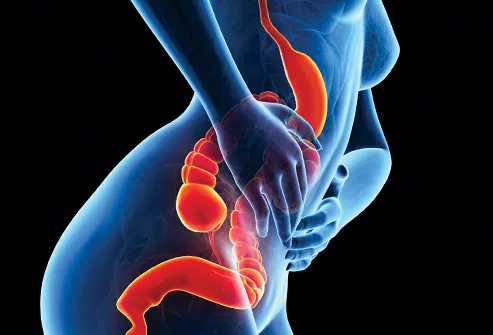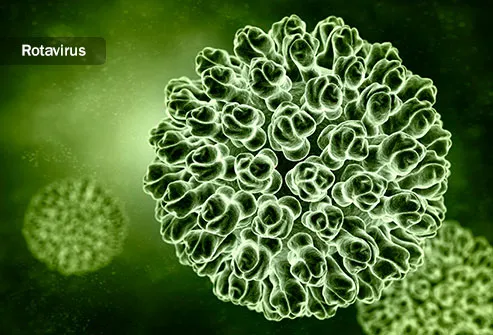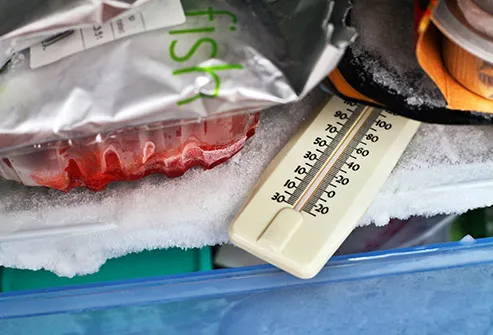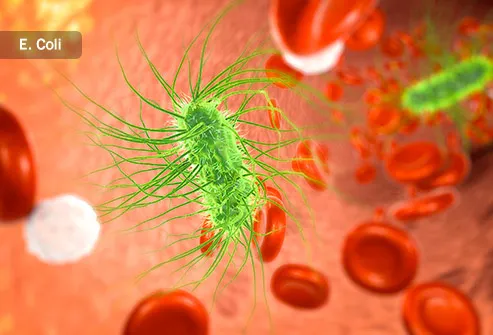Here's What Really Causes Stomach Flu

This may be what you call it when you feel sick to your stomach, but doctors call it gastroenteritis. It’s usually caused by a virus, but it’s not the flu virus, so it’s not actually stomach flu. Bacteria and parasites also can cause it.

Gastroenteritis causes diarrhea, nausea, and possibly vomiting. You also may have a headache, fever, chills, and pain in your belly. The most common kind -- the one caused by a virus -- makes you feel sick 12 to 48 hours after you’re exposed to it, and it can last up to 3 days. If it’s caused by bacteria or parasites, it may last longer. It can be dangerous for people who have other health conditions, as well as babies and older people.

This is when a virus infects your cells and inflames your stomach lining as well as your intestine (the tube that connects your stomach to your anus). It’s very contagious -- you can get it if you touch an infected person or something they’ve touched, or if you eat food they prepared. You also can get it if you eat shellfish from contaminated water or fruits and vegetables washed in it.

Four kinds of viruses can bring on gastroenteritis. Rotavirus is the leading cause in infants and young children. It can affect adults, too, but their symptoms are milder. Norovirus is the most common cause in adults. Less common ones include adenovirus -- which can take up to 10 days to cause symptoms -- and astrovirus. Both of these affect children more often than adults.

These microscopic living organisms are all around you -- many are harmless, and some are even helpful. But others, like Salmonella and E. coli, can get into your food and cause stomach issues. They can get in at pretty much any point: as food grows or is harvested, processed, stored, shipped, or prepared. You also can get gastroenteritis if the bad bacteria gets on food from kitchen surfaces or utensils.

Bacteria multiply more quickly in temperatures between 40 and 140 degrees F, so use your fridge and freezer to keep cold food cold and your oven to keep hot food hot. Bacteria in refrigerated or frozen foods can become active again if they're brought to room temperature, and some can make a lot of toxins in the food before you eat it. In those cases, you might feel sick within just a few hours.

This is another common way to get gastroenteritis -- usually from food or water contaminated with bad bacteria. If you’re traveling to developing countries in Africa, Asia, Latin America, or the Caribbean, stay away from raw fruits and vegetables, meat, fish, shellfish that’s raw or not hot when it’s served, and street food. It also might be a good idea to brush your teeth with bottled water and ask for your drinks without ice.

Parasites are tiny creatures that live inside other animals. This kind of gastroenteritis doesn’t happen often in the U.S. or other developed countries, but certain parasites called Cryptosporidium parvum and Giardia can spread through water and cause infection. You can get it if contaminated water is used to grow or prepare food you eat or if you swim in it.

No matter what brings it on, most cases of gastroenteritis go away within a few days if you get rest and plenty of fluids. If your symptoms are really bad or last longer than that, see your doctor. Antibiotics and other specialized drugs can clear up certain rare bacterial and parasitic infections, and your doctor can run tests for other conditions that cause similar stomach trouble.

These can ease gastroenteritis symptoms. It may be hard to hold food down, but you can get fluids, calories, vital minerals (electrolytes), and nutrition from fruit juice, sports drinks, caffeine-free soft drinks, or broth. When you feel ready to try solid food, start with bland things like rice, potatoes, bread, applesauce, or bananas. Avoid fatty or sugary foods, dairy, caffeine, and alcohol until you’re better. They may make you feel worse.

This is when your body loses too much water, and diarrhea and vomiting can cause it. It’s the most common health problem caused by gastroenteritis and can be especially dangerous for babies, older people, and people who have other conditions. Signs include extreme thirst, dark urine, and feeling tired or dizzy. Your child may have dry mouth and sunken eyes and cheeks.

If your child has a stomach bug, give her plenty of water and “rehydration” liquids that have the right nutrients. Adults should drink lots of fluids: sports drinks, juice, and soup, for example. You also can suck on ice chips or ice pops. If you can’t keep fluids down, are dizzy, and your heart rate is fast, you might have severe dehydration. If so, go to an emergency room right away so fluids can be put directly into your system.

In rare cases, gastroenteritis causes hemolytic uremic syndrome, most often in children under 10. If E. coli bacteria get inside you, their toxins can make you lose red blood cells and platelets, which help your blood clot and keep your blood vessels healthy. This can cause kidney failure and affect your nervous system. You may be pale, cranky, have to pee less often, and have bloody stool. If so, call your doctor or go to the emergency room.

Get medical help if you’re vomiting and can’t keep any liquids down for longer than 24 hours, or you have diarrhea for more than a couple of days (24 hours for children). Other signs that you need medical help include severe pain in your gut or rectum, fever higher than 101 degrees F, stools with blood or pus or black color, or any nervous system problems, like issues with balance, coordination, or numbness.